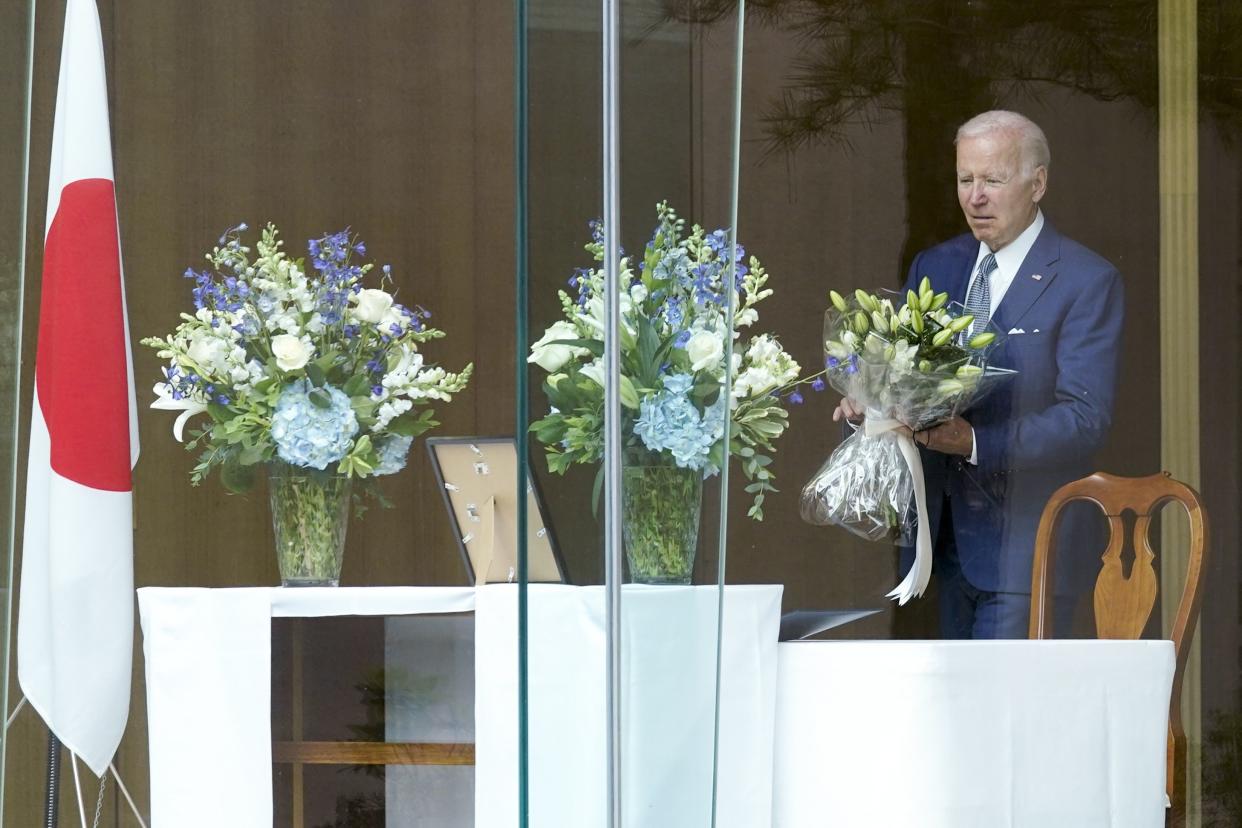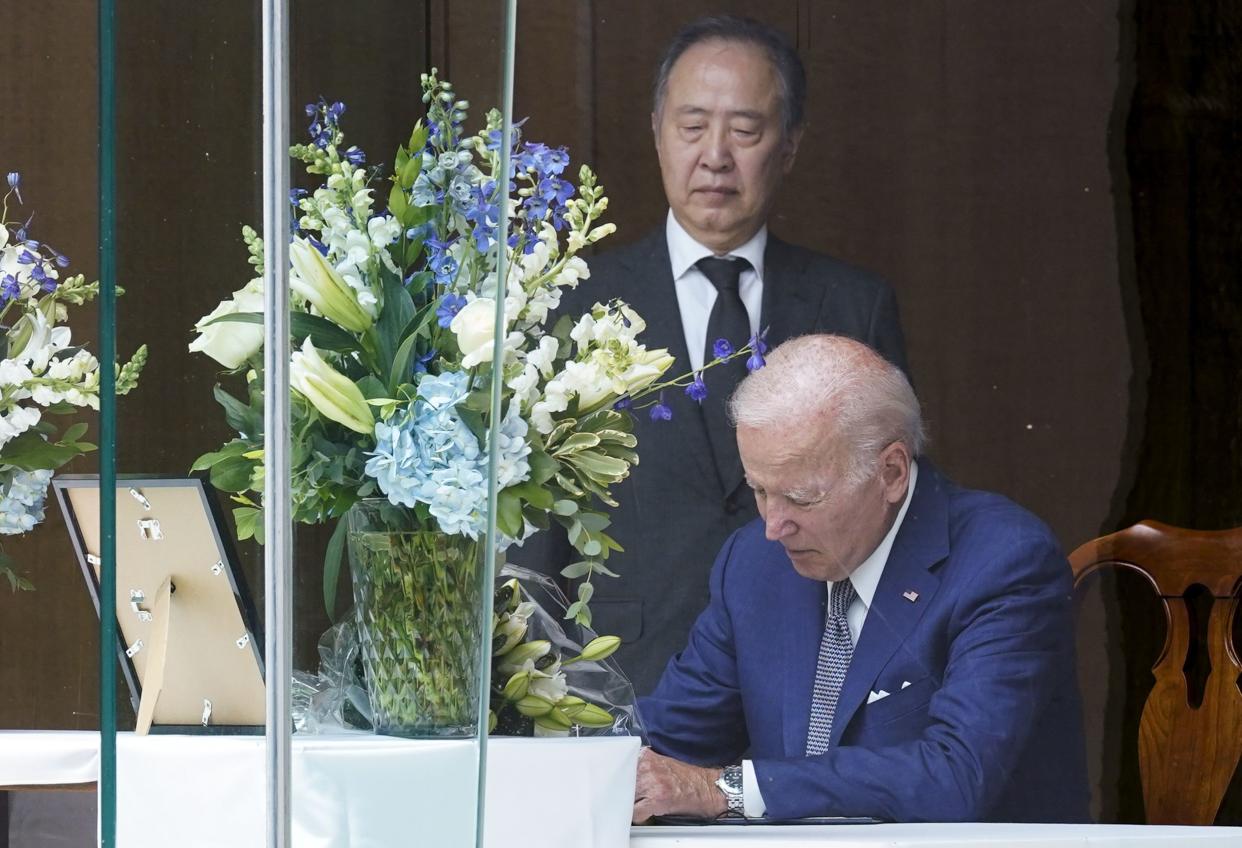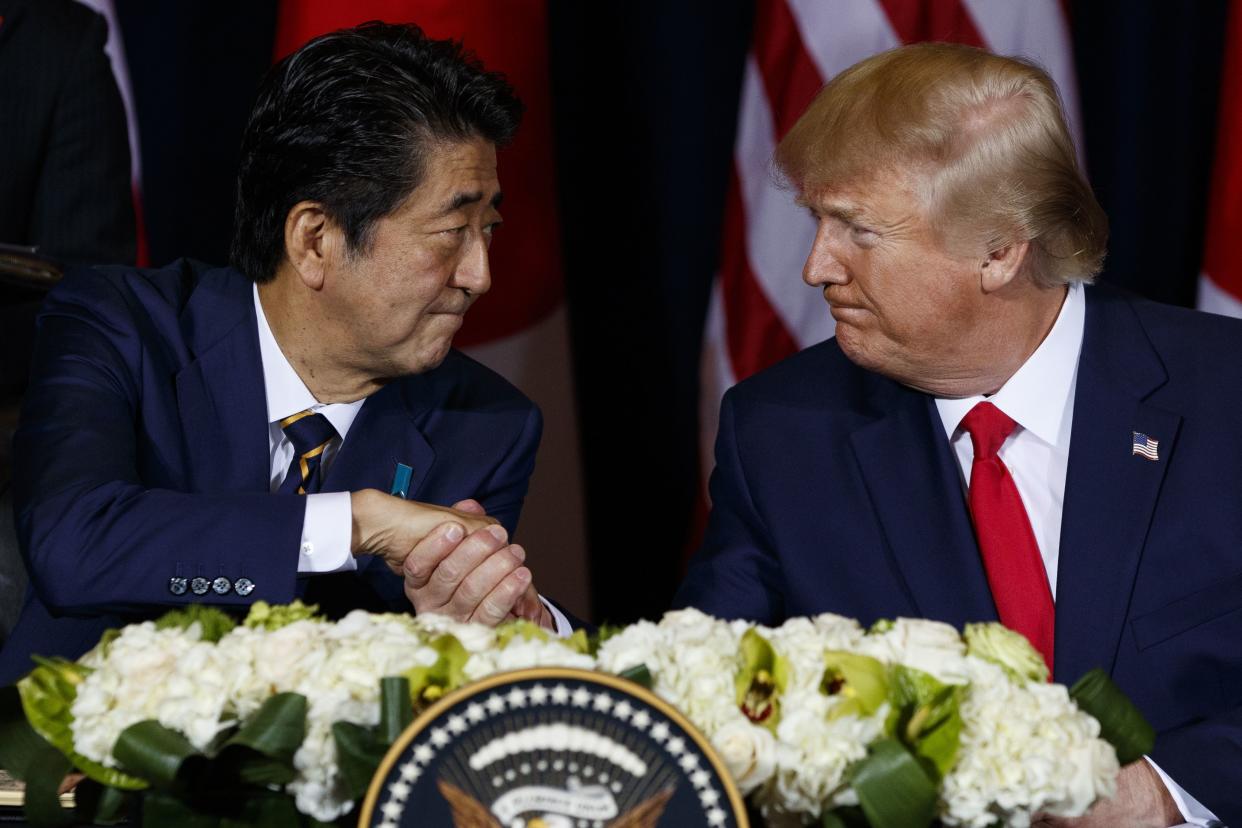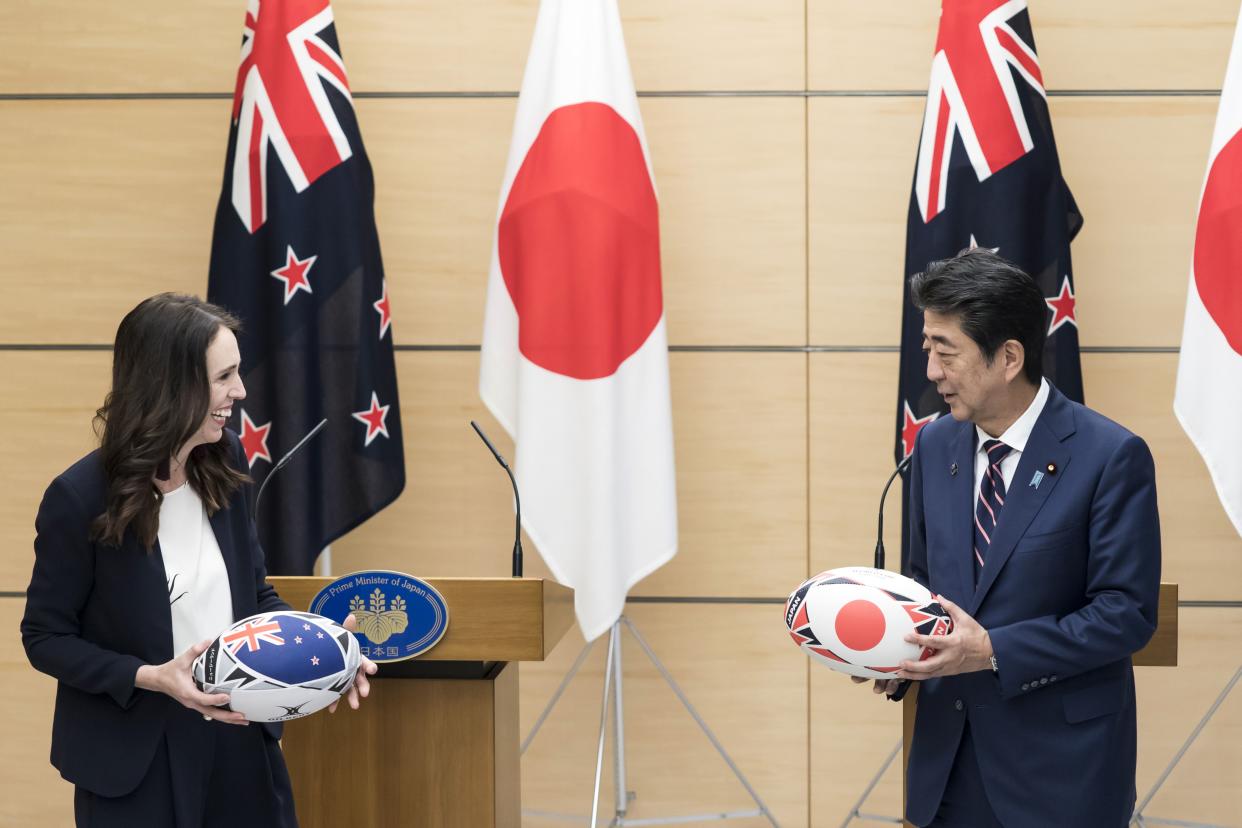President Biden joins world leaders in mourning death of former Japanese Prime Minister Shinzo Abe
The assassination of former Japanese Prime Minister Shinzo Abe sent shock waves around the world.
“This is a tragedy for Japan and for all who knew him. I had the privilege to work closely with Prime Minister Abe,” President Biden said, describing the former Japanese leader as “a champion of the Alliance between our nations and the friendship between our people.

President Biden holds a bouquet as he arrives to sign a condolence book at the Japanese ambassador's residence in Washington on Friday. (Susan Walsh/)
“The longest serving Japanese Prime Minister, his vision of a free and open Indo-Pacific will endure,” he continued. “Above all, he cared deeply about the Japanese people and dedicated his life to their service. Even at the moment he was attacked, he was engaged in the work of democracy.”
Abe was delivering a speech outside a railway station in the city of Nara when he was shot twice from an assailant that stood behind him on Friday. He was campaigning at the time on behalf of his conservative Liberal Democratic Party ahead of the upcoming parliamentary vote slated for Sunday.
The former prime minister was airlifted to Nara Medical University hospital, where he was pronounced dead around 5 p.m. local time.
“Gun violence always leaves a deep scar on the communities that are affected by it,” Biden said. “The United States stands with Japan in this moment of grief. I send my deepest condolences to his family.”

President Joe Biden signs a condolence book at the Japanese ambassador's residence in Washington, Friday, July 8, 2022, for former Japanese Prime Minister Shinzo Abe who was assassinated on Friday while campaigning. Japanese Ambassador to the United States Koji Tomita looks on. (Susan Walsh/)
Abe maintained a close relationship with the United States during his time as prime minister. He visited Hiroshima with then-President Barack Obama in May 2016, marking the first time a sitting president has visited the site where the atomic bomb was dropped in 1945. Later the same year, he became the first prime minister to visit Pearl Harbor.
Abe was the first foreign leader to meet with former President Donald Trump after he was elected in November 2016.

In this Sept. 25, 2019 photo, President Donald Trump shakes hands with Japanese Prime Minister Shinzo Abe before signing an agreement on trade at the InterContinental Barclay New York hotel during the United Nations General Assembly. (Evan Vucci/)
In a post to his Truth Social platform, the former president demanded the deadly attack be “dealt with swiftly and harshly.”
“Few people know what a great man and leader Shinzo Abe was, but history will teach them and be kind,” Trump wrote. “He was a unifier like no other, but above all, he was a man who loved and cherished his magnificent country.”
Leaders beyond the United States echoed the sentiment, all of them decrying the assassination.
New Zealand Prime Minister Jacinda Ardern said Abe was one of the first leaders she met after taking office.
“I recall him asking after the recent loss of our pet when I met him, a small gesture but one that speaks to the kind of person he is,” Ardern said. “Events like this shake us all to the core.”

New Zealand's Prime Minister Jacinda Ardern (L) and Japan's Prime Minister Shinzo Abe (R) exchange rugby balls after a joint press conference in Tokyo on September 19, 2019. (TOMOHIRO OHSUMI/)
South Korean President Yoon Suk Yeol’s office called the shooting “an intolerable criminal act” while Iran condemned it as “an act of terrorism.”
“As a country that has been a victim of terrorism and has lost great leaders to terrorists, we are following the news closely and with concern,” Iran’s Foreign Ministry spokesperson said.
Leaders from Germany, Pakistan, Sweden and the Philippines joined the global community in mourning the loss of Abe. India’s Prime Minister Narendra Modi announced that Saturday would serve as a national day of mourning in honor of the late Japanese leader.
“Mr. Abe made an immense contribution to elevating India-Japan relations to the level of a special strategic and global partnership,” Modi said. “Today, whole India mourns with Japan and we stand in solidarity with our Japanese brothers and sisters in this difficult moment.”
In the immediate aftermath of the shooting, authorities arrested Yamagami Tetsuya, who reportedly confessed to the attack. The suspect said he resented a specific group that he believed Abe was linked to. Japanese authorities declined to name the group or reveal whether Abe was affiliated with it.
With News Wire Services
